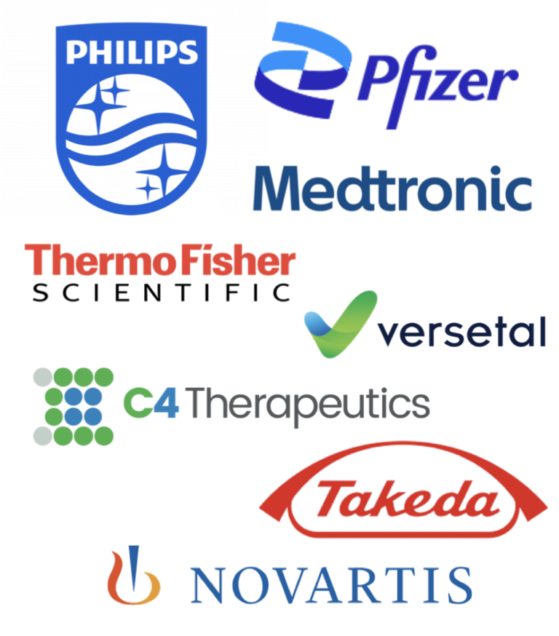Advancing Corporate-Academic Partnerships
Standing up Cutting-Edge Engineering Facilities
New BTEC Industrial Advisory Board Established as Center Opens
The College of Engineering recognizes it has entered an era motivating, more than ever before, mutually beneficial partnerships between biomedical industry and academia. Ideally, companies can align with academic partners along three key axes: technology translation; corporate-university research; and ensuring a maximally valued future workforce, one prepared for the most recent emerging techniques.
The Bioengineering Technology & Entrepreneurship Center (BTEC) was designed as a place to positively create corporate partnerships along all three axes for the biotechnology, pharmaceutical, and medical technology sectors. It is the biological counterpart to the Engineering Product Innovation Center (EPIC) maker space that has a focus on mechanical engineering. BTEC is a place where biomedical education is transformed by hands-on learning and guidance from industry.
The center is part of the College of Engineering’s strategic plan to build multi-dimensional partnerships with industry. BTEC is a 5,000- square-foot, hands-on space with a Cellular and Tissue Engineering Facility, a Bioinstrumentation and BioSensor Facility, and the eClinicalWorks Digital and Predictive Medicine Suite. It is designed to support hands-on educational components at the intersection of technology, data, biology, and medicine; to support student open-innovation for biomedical applications; and to facilitate deep partnerships with industry, including industry-mentored student projects. These partnerships are made through an extraordinary Advisory Board made up of leaders in the biotech and medtech industries. Board companies gain early insights into faculty research and activities while providing explicit input on what skill sets would provide most value for entry-level bioengineers.
 According to Diane Joseph-McCarthy, BTEC’s executive director, eight sponsor companies from the pharmaceutical, biotech and medical tech sectors have joined the center’s advisory board since it opened last year. Recently, they participated in an inaugural virtual meeting where student video overviews of projects executed in BTEC were shown, and faculty offered presentations on their research.
According to Diane Joseph-McCarthy, BTEC’s executive director, eight sponsor companies from the pharmaceutical, biotech and medical tech sectors have joined the center’s advisory board since it opened last year. Recently, they participated in an inaugural virtual meeting where student video overviews of projects executed in BTEC were shown, and faculty offered presentations on their research.
“Each company discussed what they see as critical for students to know,” Joseph-McCarthy said. “They want students to be product- and impact-focused, and be able to frame a problem statement and execute it. They want engineers who can work well in teams to address complex problems involving convergent science.”
The companies are Philips, Medtronic, Thermo Fisher Scientific, Novartis, Pfizer, Takeda, C4 Therapeutics and Versetal. Several were represented by their senior research and development executives at the event. Joseph-McCarthy, who is also a professor the practice in BME, said they were interested in gaining insight into research going on in the Biomedical Engineering Department, and shaping the education of the biomedical engineers of tomorrow. The companies offer financial support to BTEC, and gain insight and provide feedback on BTEC activities related to the fields in which they do business.
At the meeting, students made five-minute video presentations about their BTEC experiences, including undergraduates’ discussion of their summer internship in BTEC and a master’s student’s work on 3D bioprinting.
The board members also heard about faculty research in each of three areas that BTEC was designed to focus on. Associate Professor Mary Dunlop (BME) discussed her work related to molecular, cellular and tissue engineering; Associate Professor Darren Roblyer (BME, ECE) covered biosensors and instrumentation; and Associate Professor James Galagan (BME, Microbiology) presented his work related to digital and predictive medicine.
“They were all very well received,” Joseph-McCarthy said. “Some board members have followed up with faculty and discussed possible future collaborations.”
The companies’ interest has reached beyond faculty. They have been active in providing feedback on what contemporary biomedical engineering education should cover. Machine learning, AI, data science and real-world applications of biomedical engineering technology are recurring themes.
They are also engaging students directly, with at least two companies sponsoring senior design projects this year, with others likely to follow, Joseph-McCarthy said.